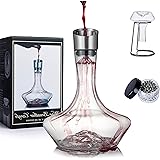Embracing an Alcohol-Free Journey: Lessons in Personal Discipline and Long-Term Wellness
The journey toward an alcohol-free life is often perceived as a daunting challenge, yet it is a path that many individuals choose for profound reasons, leading to significant personal and professional benefits. The video above features Donald Trump discussing his lifelong abstinence from alcohol, highlighting a remarkable example of sustained personal discipline. His reflections touch upon the societal pressures around drinking and the potential negative consequences he believes he avoided by never consuming alcohol.
For those contemplating quitting drinking or simply curious about an alcohol-free lifestyle, this perspective offers valuable insights. It underscores the profound impact that early decisions can have on one’s entire life trajectory, shaping not only personal health but also public perception and professional capabilities. Understanding the motivations behind such a choice can provide inspiration and a framework for anyone looking to make similar empowering changes.
The Power of Choice: Committing to an Alcohol-Free Life
Donald Trump explicitly states, “I’m not a drinker. I can honestly say I never had a beer in my life… I’ve never had alcohol.” This declaration emphasizes a conscious, consistent choice made over decades. Such a decision, particularly in a society where alcohol consumption is often normalized, requires considerable personal resolve and an unwavering commitment to one’s values.
This commitment transcends mere avoidance; it represents a foundational lifestyle choice that prioritizes clarity, control, and long-term well-being. For many, embarking on an alcohol-free journey means actively choosing a different path than their peers, especially during formative years. Consequently, this choice can lead to a unique development of character and self-reliance.
Avoiding the Pitfalls: The Proactive Stance Against Alcohol
The video touches upon the idea of potential negative outcomes by asking, “Can you imagine if I had? What a mess I’d be?” This rhetorical question eloquently summarizes a core benefit of abstinence: avoiding the various “messes” alcohol can create. These can range from immediate health risks and impaired judgment to long-term issues like addiction, financial strain, and damaged relationships.
Furthermore, an alcohol-free lifestyle allows for sustained mental clarity and physical health, which are invaluable assets in any competitive field. By eliminating alcohol, individuals proactively remove a significant variable that could otherwise hinder their progress and well-being. This proactive stance is not merely about saying “no”; it is about saying “yes” to a life of greater potential and fewer self-imposed obstacles.
Reflecting on Early Influences and Long-Term Impact
The speaker recalls witnessing heavy drinking in high school, mentioning “They were 16, 17 years old.” This period is critical for developing habits and making choices that can ripple through an entire lifetime. While some young individuals may experiment with alcohol and later moderate their consumption, for others, early exposure can lay the groundwork for more significant challenges down the line.
The reflection on these formative years prompts an important discussion about the perception of past actions. As the speaker queries, “Does that mean that they can’t do something that they wanna do with their life?”, he acknowledges the complexity of judging individuals based on past difficulties. Indeed, personal growth and redemption are powerful forces, and many people successfully navigate their challenges to achieve great things, even after struggles with alcohol.
Nevertheless, the choice to abstain from alcohol from the outset, as highlighted in the video, illustrates a path of preventative wellness. This approach avoids the need for later recovery or the lingering questions about one’s past. Individuals pursuing an alcohol-free lifestyle often report enhanced decision-making capabilities and a sustained capacity for focus, contributing significantly to their personal and professional growth.
The Discipline Behind an Alcohol-Free Journey
Living without alcohol, especially for a lifetime, requires immense personal discipline. This discipline extends beyond simply refusing a drink; it involves navigating social situations where alcohol is prevalent, developing alternative coping mechanisms for stress, and consistently reinforcing one’s commitment. In essence, it builds a foundation of self-control that can positively impact every other area of life.
This level of self-mastery is often overlooked in discussions about success, yet it is a critical component. The ability to resist immediate gratification and adhere to long-term goals is a hallmark of individuals who achieve significant milestones. An alcohol-free journey serves as a powerful testament to this discipline, demonstrating a consistent choice that prioritizes health and future objectives over fleeting pleasures.
Broader Implications for Health and Public Perception
Beyond personal discipline, the choice to avoid alcohol carries broader implications for health and public perception. Numerous studies link alcohol consumption to various health issues, including liver disease, cardiovascular problems, and certain cancers. Opting for sobriety mitigates these risks, contributing to better overall physical health and longevity.
From a public standpoint, a history of sobriety can often project an image of reliability, clear-headedness, and steadfastness. In professional and public roles, this perception can be a distinct advantage. While personal struggles with alcohol can be overcome, the absence of such a history, as highlighted by Trump, can present a narrative of unbroken consistency and unwavering focus.
Therefore, the decision to embark on an alcohol-free life is not merely a personal health choice; it can also be a strategic one, shaping how an individual is viewed by peers, colleagues, and the wider public. It exemplifies a commitment to well-being that resonates across various domains of life, fostering trust and respect.
Exploring the Benefits of Quitting Drinking or Abstaining Entirely
Whether an individual chooses to abstain from alcohol entirely from a young age or embarks on a journey of quitting drinking later in life, the benefits are compelling and multifaceted. Improved physical health is often the most immediate and noticeable gain, with better sleep quality, increased energy levels, and enhanced immune function.
Moreover, mental and emotional well-being significantly improves. Reduced anxiety, greater emotional stability, and enhanced cognitive function are frequently reported by individuals who adopt an alcohol-free lifestyle. The absence of hangovers and the mental fog associated with alcohol consumption allows for clearer thought processes and more productive daily living.
Financially, sobriety can lead to substantial savings, redirecting funds previously spent on alcohol towards more constructive endeavors. Furthermore, relationships often strengthen as communication improves and trust is rebuilt, free from the complications that alcohol can introduce. The decision to pursue an alcohol-free journey is thus an investment in a more fulfilling and empowered existence.







